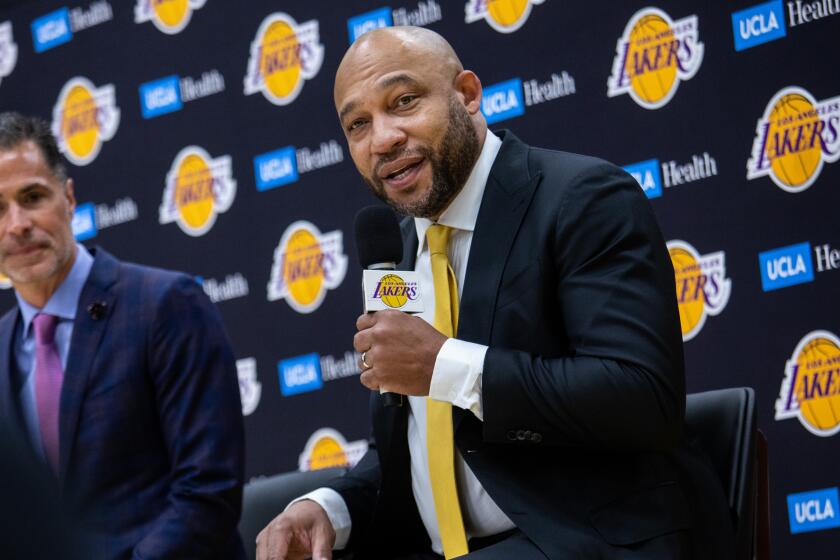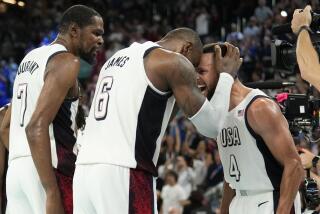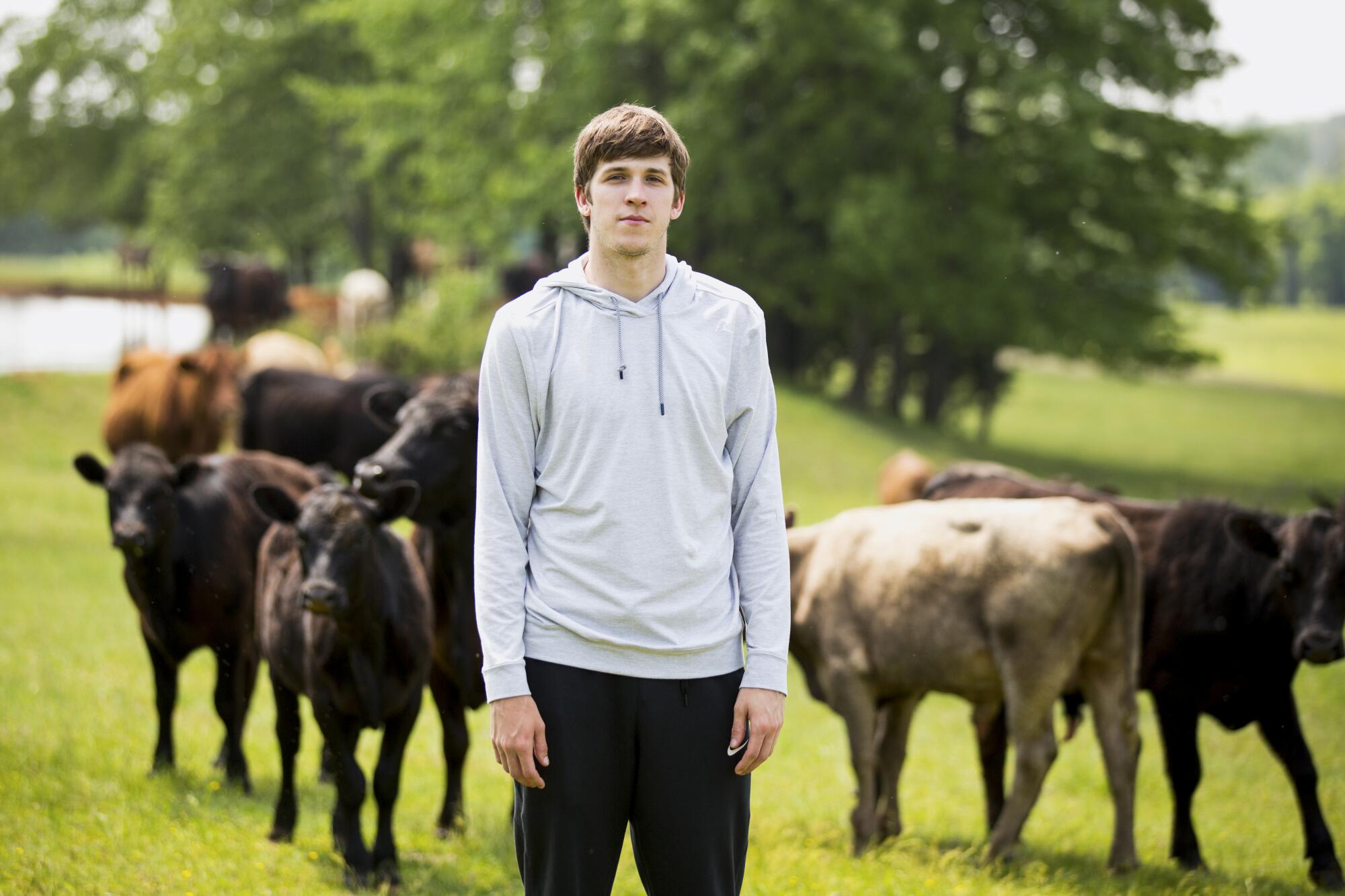
NEWARK, Ark. — Austin Reaves is in the middle of a pasture. The air is heavy and hot, and the gnats are worse than they were a year ago. Yet out here, near the “big pond” where his mom sometimes catches dinner, it’s total serenity.
The horizons in all directions are free of man-made structures, framed by deeply rooted green forests slicing into the sky on a calm Wednesday afternoon.
This is home, the soil that sprouted “Hillbilly Kobe,” the 6-foot-5 guard the Lakers unearthed after last year’s NBA draft. But here, the country kid, who is as country as it gets, isn’t quite comfortable.
His allergies are destroying his sinuses, the tip of his nose turning Arkansas Razorback red while his eyes fill with tears.
Even worse, he might get chased again.
Earlier that May morning, Reaves sat with his mother, Nicole Wilkett, at the kitchen table and remembered the time the family’s cows raced around him and the family dogs, one of a hundred reasons why he found a different line of work.
Could it happen again, Reaves caught in the middle of a stampede?
“You might get your wish,” he says with a chuckle as the herd starts to surround him.
The cows moo. Maybe they’re angry. Or maybe, like everyone else in this pocket of tiny farm towns, they want to get closer to the NBA player.
Reaves moos back before he can find out.
“You never liked the cows,” Wilkett laughs.
The man-made moos work. The cattle keep their distance. Reaves pops back behind the wheel of a four-wheeler and jets to another corner of the 300-acre farm.
It could’ve been his, but he chose something else.
“Either you get in the gym or you work on the farm,” Wilkett would say.
It wasn’t an option so much as a threat — and it worked.
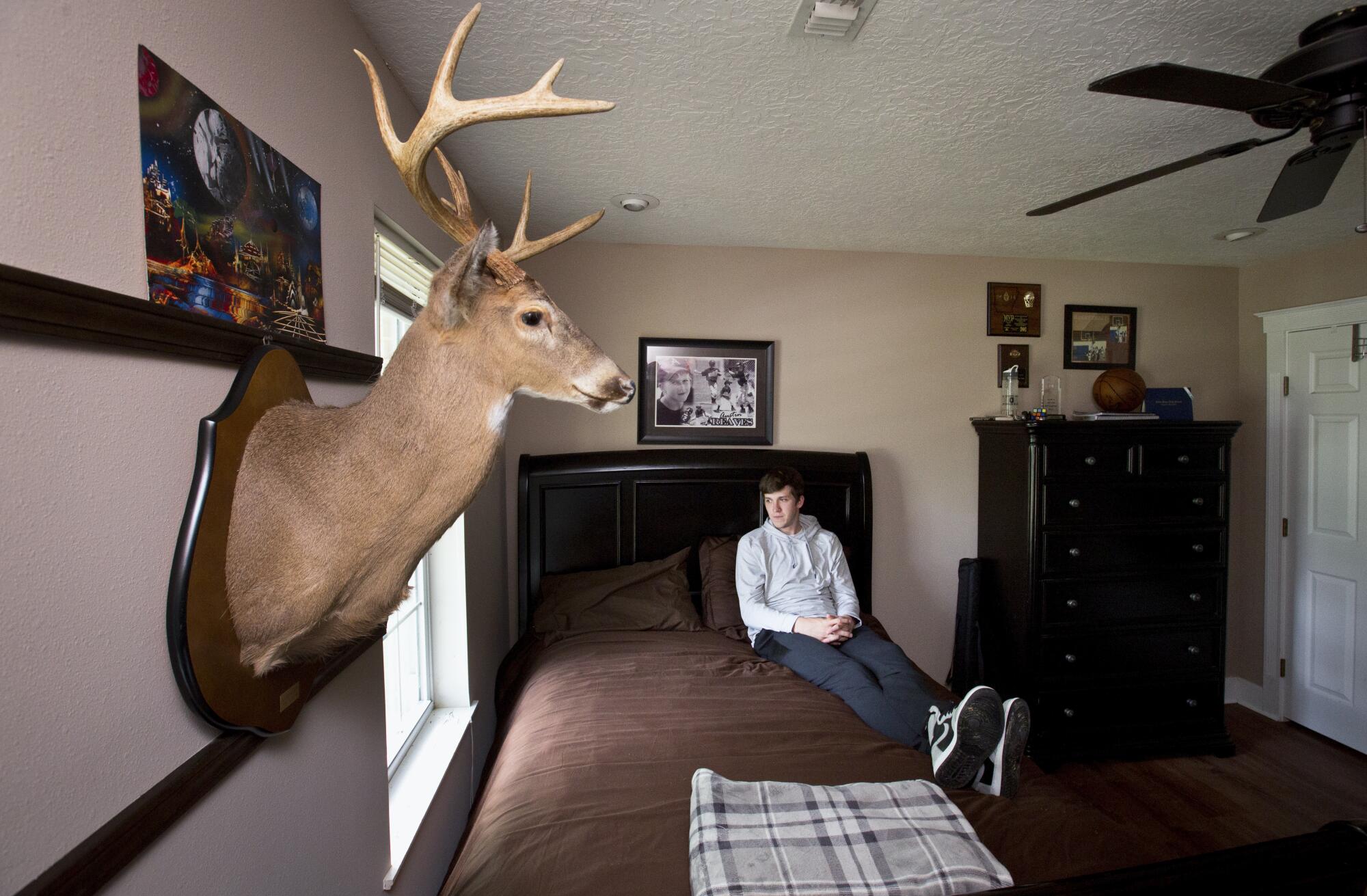
While everyone in the family agrees that Reaves would’ve been a miserable farmer, Plan B — become an NBA player — seemed crazier.
He was, his detractors thought, just a small-town kid who was too slow and small, his narrow shoulders not exactly built for the physicality of the game. In a league that looks for sure things, Reaves was far from one.
So before the NBA draft, his agent wanted to know why he wanted to do this.
Was it the money? The cars and the clothes? The women? The fame?
“I looked him in his eyes,” Reaves said. “And I was like, ‘To tell everybody to f— off.’ My whole life, I’ve been too skinny. Not athletic enough. At one point I wasn’t skilled enough. Everybody found excuses for me not to. … It was always, ‘We’re gonna find something about him that he can’t do good enough to make it.’
“Yeah, so it was a good feeling to just tell everyone to f— off.”
Everyone, it turns out, includes the cows.
“Even if you don’t love basketball, you love Austin.”
— Independence County librarian Kelly Dennison
Following his NBA debut with the Lakers, a season that personally couldn’t have gone much better, Reaves came back home, splitting time between the farm in Newark and his father Brian Reaves’ house 10 minutes down the road in Batesville.
At night when he drives the roads that connect Newark to Oil Trough to Sulphur Rock, his car’s headlights are the only thing that cut through the eerie, dark emptiness.
It’s always been like this, but after one season living in Los Angeles, he really notices it.
Reaves is more famous here than he is anywhere else on the planet, a former high-school star who would sign autographs on the court for 20 minutes before making it into the locker room after a game.
And that hasn’t changed, even if the requests have gotten stranger.
During a dinner at a riverfront steakhouse, Reaves’ buddies teased him about his NBA fame around town.
At a golf tournament the three of them won, a man approached Reaves and asked for an autograph. Around here, it happens all the time.
The Lakers introduced Darvin Ham as their 28th coach Monday, and he expects Russell Westbrook will be a contributor on the team next season.
This guy, though, approached Reaves with tattoos covering his arms. He held out a forearm, showed Reaves a blank patch of skin and asked him to sign there so he could get the signature tattooed to complete the sleeves.
“Even if you don’t love basketball, you love Austin,” Independence County librarian Kelly Dennison said. “Especially around here.”
The way Reaves puts it, either he knows you or he knows someone who knows you.
Reaves’ father played point guard at Arkansas State, finishing No. 3 in career assists. After leaving the team, he was replaced in the lineup by a famous incoming guard — “Hoop Dreams” star Arthur Agee. Reaves’ mother also starred at Arkansas State, her 19 points per game the second-highest career scoring average in school history.
“More of a scorer than a shooter, know what I mean,” his mother said, grinning as she knocked down a 10-foot shot on a half-court next to the house.
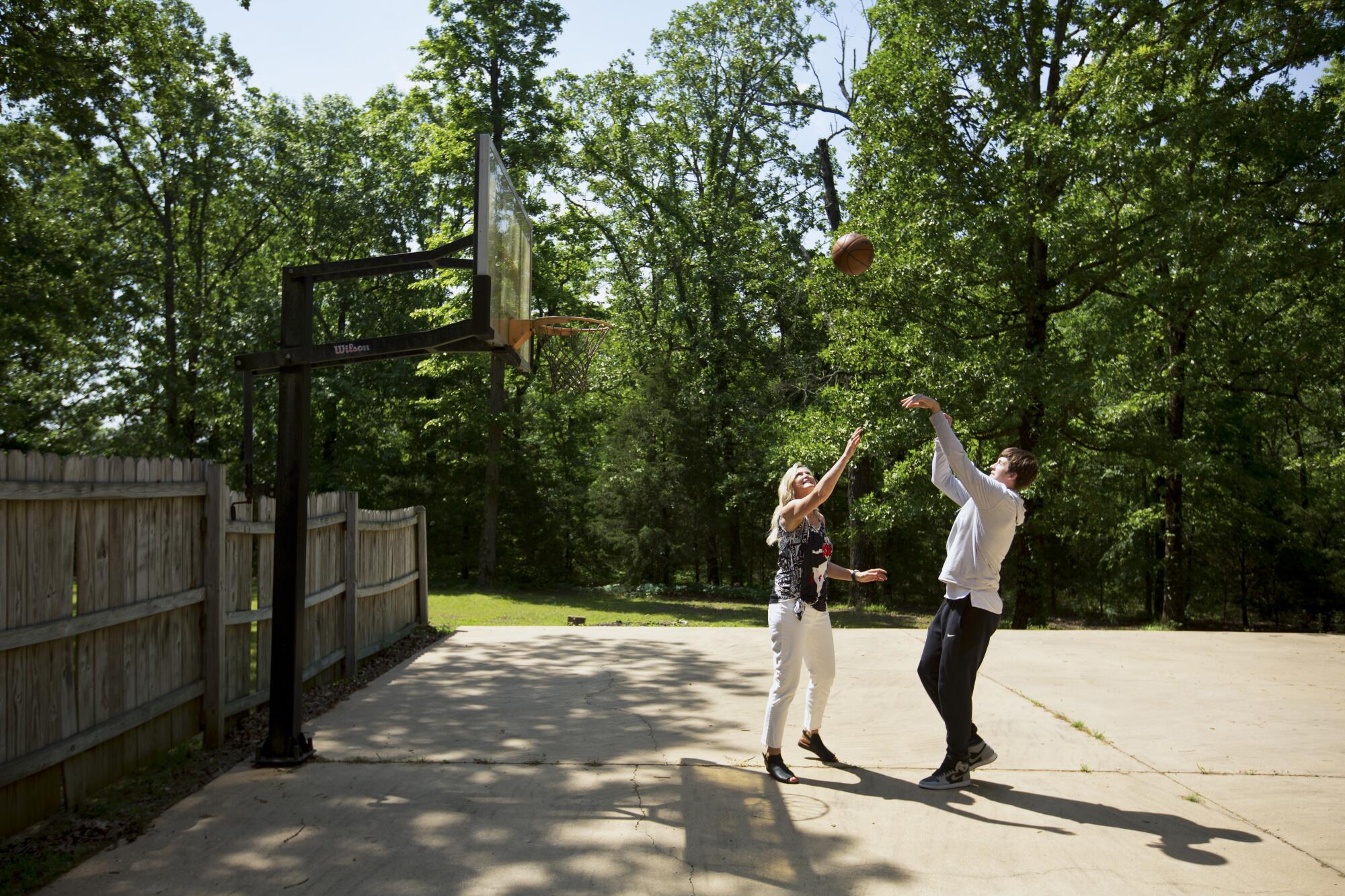
Austin, his older brother, Spencer, and their friends would play “no fouls” and “no out of bounds” on that court, surrounded by forest, with someone usually ending up bloody after wrestling for a loose ball in the woods.
Spencer is a Newark celebrity in his own right. He plays professionally in Germany, but that doesn’t carry the same weight like it used to.
“Now I’m Austin’s older brother,” Spencer said with a laugh. “And I hate when that happens.”
Growing up in a three-stop-sign town so small that the local pizza place is simply called “The Pizza Place,” it was either going to be sports or farm work, Wilkett told her boys.
There was no real decision — they all knew that. Austin’s childhood bedroom walls are covered with the evidence. Above his bed is a collage of photos from the youth baseball team for which he was a star shortstop. He was (and still is) a terrific golfer.
On the opposite wall, Reaves still has the trophy from the first shot he ever made against the bucks — the deer head from a successful hunt when he was 6.
But, unsurprisingly considering their genetics, the Reaves boys made their names on the court.
“I thought it was a typo. Like I had no idea.”
— Austin Reaves after seeing he had 73 points in a triple-overtime game
When Reaves was a freshman and his brother was a junior, their tiny Cedar Ridge High School won the 2A state title. That team beat East Poinsett County and its star guard Malik Monk, a blue-chip recruit for Kentucky and future Lakers teammate.
Then, Reaves was just a shoelace-skinny point guard, tasked with running Cedar Ridge’s offense.
“Sometimes, he’d get beaten up just going through the layup line,” their coach, Isaac Middlebrooks, said.
Yet Reaves started to build a reputation for toughness. It’s not like he avoided the beatings from his brother on the court or in the family basement. And his favorite player on his favorite team, Kobe Bryant, was known for his toughness, resiliency and grit as much as his skill.
“As an older brother, you always enjoy beating up your younger brother,” Spencer said. “He kept coming back for more even when he was just getting pummeled all the time. But he was always resilient.
“He never shied away from competing in that sense even though I was beating the s— out of him.”
The Reaves boys and Cedar Ridge won the state title again the next year, beginning their small-town celebrity.
“In small towns, sometimes basketball or sports are the only thing people have to experience together,” Spencer said. “We don’t have a NBA team. We don’t have a NFL team. … I think it’s nice for people to have something to hold on to, to be connected to. And we were good enough as a high school team to be one of those things. It was really cool.”
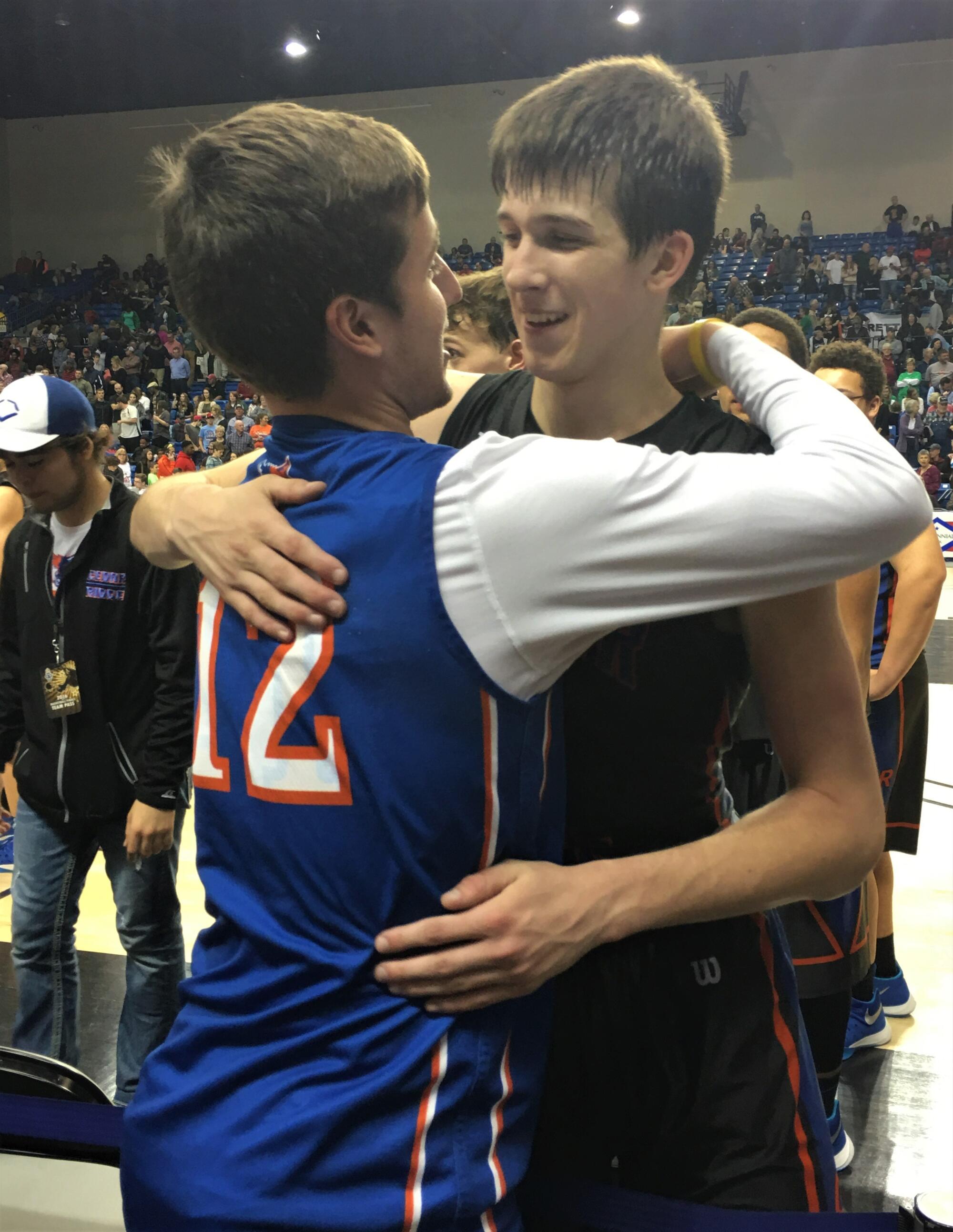
By the time he was a senior, Austin was one of the highest-scoring high school players in the country. Opposing defenses fired double-teams and defensive schemes trying to slow him down. Middlebrooks searched for the right competition, playing bigger schools and crossing state lines to find the best games.
Almost every time Reaves did something spectacular.
There was the time he scored 33 of his 57 points in the fourth quarter, a game capped with a buzzer-beater for the win. He averaged more than 40 points. In the state title game, he scored 43 after battling a slow start and foul trouble to win for the third time in four years.
But none of those games was like the one he had on Dec. 4, 2015, against the Forrest City Mustangs, a team that eventually won a state championship three divisions higher than Reaves’ Cedar Ridge team.
Reaves scored 73 points in a wild 117-115, triple-overtime win.
The Mustangs’ press allowed Reaves to attack and attack. He’d shoot 37 free throws, making 34.
“Every time when we needed a bucket, he was going to get it,” Middlebrooks said.
Late in the game, which wound up being the highest scoring in state history, Reaves looked up at the scoreboard and saw the point total next to his name.
“I thought it was a typo. Like I had no idea,” he said. “I thought they messed up.”
For once they’d actually gotten it right with Reaves.
“He was clearly the guy who was going to dictate what was going to happen on the floor.”
— Oklahoma coach Lon Kruger on Austin Reaves’ leadership
Things had changed when Reaves arrived home after two years at Wichita State. The
mid-major program was built on the backs of players a lot like him, the ones college basketball’s biggest powerhouses looked past for one reason or another. But he wasn’t a star. Hell, he wasn’t even really a starter.
“People were still proud of him,” Reaves’ father said. “But when people go … it’s nothing like when they’re here winning state championships.”
Reaves was a big deal and Wichita State coach Gregg Marshall knew it.
“His scoring numbers stand out, because that’s what he needed to do in order for his high school team to be successful, but we think Austin is the complete package,” Marshall said upon Reaves’ signing.
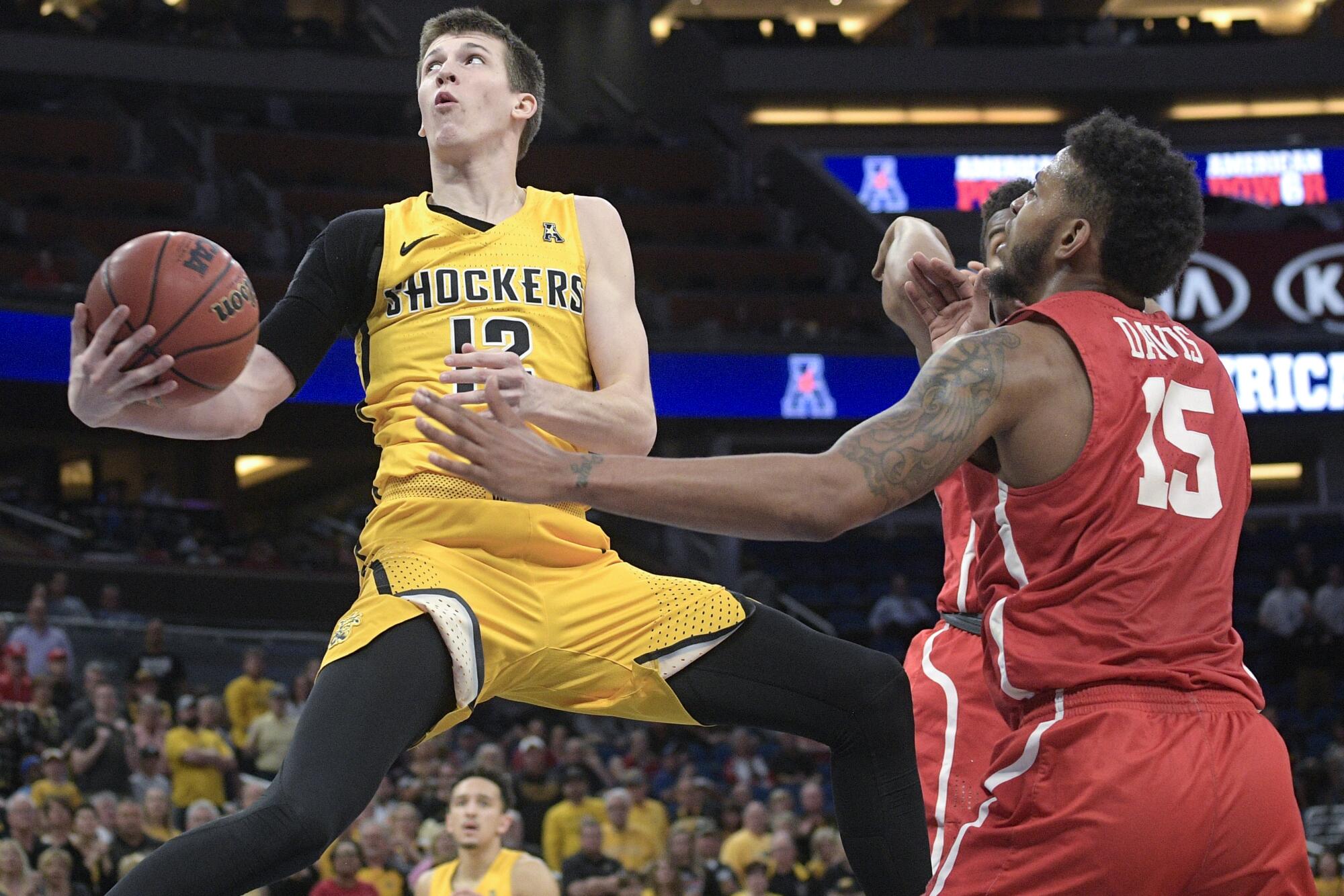
But Reaves found himself stifled, forced off the ball while playing alongside future NBA guard Landry Shamet, often left to stand in the corner and wait for the ball.
Yet Reaves managed to make the most of his new role. He made more than half his threes in limited minutes as a freshman. In a slightly bigger role as a sophomore, he made 42.5% from long range.
But this wasn’t him. So he left Wichita State.
Oklahoma was his best chance to play the way he did at Cedar Ridge, “to hoop,” as his father put it.
Reaves saw it first-hand during his sophomore season in a game against the Sooners, Trae Young cleared by coach Lon Kruger to fire whenever from wherever.
Forced to sit out a season by the NCAA after transferring, Reaves attacked Oklahoma’s starters during practices with a relentlessness that quickly established his place.
“The best player on our team is redshirting,” a coach would tell Brian Reaves.
Typically, Austin would’ve been asked to mimic the opposition as a member of the scout team. But he wasn’t playing like a typical reserve.
“It was more about Austin working on his game then being the guy from Texas Tech this day and being the guy from Kansas,” Kruger said. “… This was more him just going and making plays. And he competed like crazy.”
After one of those practices, Kruger validated Reaves’ biggest dream as they walked together.
“In high school, I thought I was always going to be put to the side because of being from literally the middle of nowhere,” Reaves said. “But I remember Coach Krug … we got to talking and he was like, ‘I really think you could be like a first-rounder next year.’
“And this was really the first time it hit me. I was like, ‘Damn. This guy has been around. He’s seen all sorts of basketball. He had Trae. He had Buddy [Hield]’ ... So that was really the first time that I was like, ‘Oh, it’s actually like really possible.’”
In his first game with Oklahoma as a junior, he played 36 minutes, shot 20 times and had 23 points. In his final game as a junior, he scored 41 points.
“Austin, his instincts for the game are really good. He’s got a really good feel for what’s going on and knows what needs to be done,” Kruger said. “… There wasn’t any question who the leader was. He was clearly the guy who was going to dictate what was going to happen on the floor.”
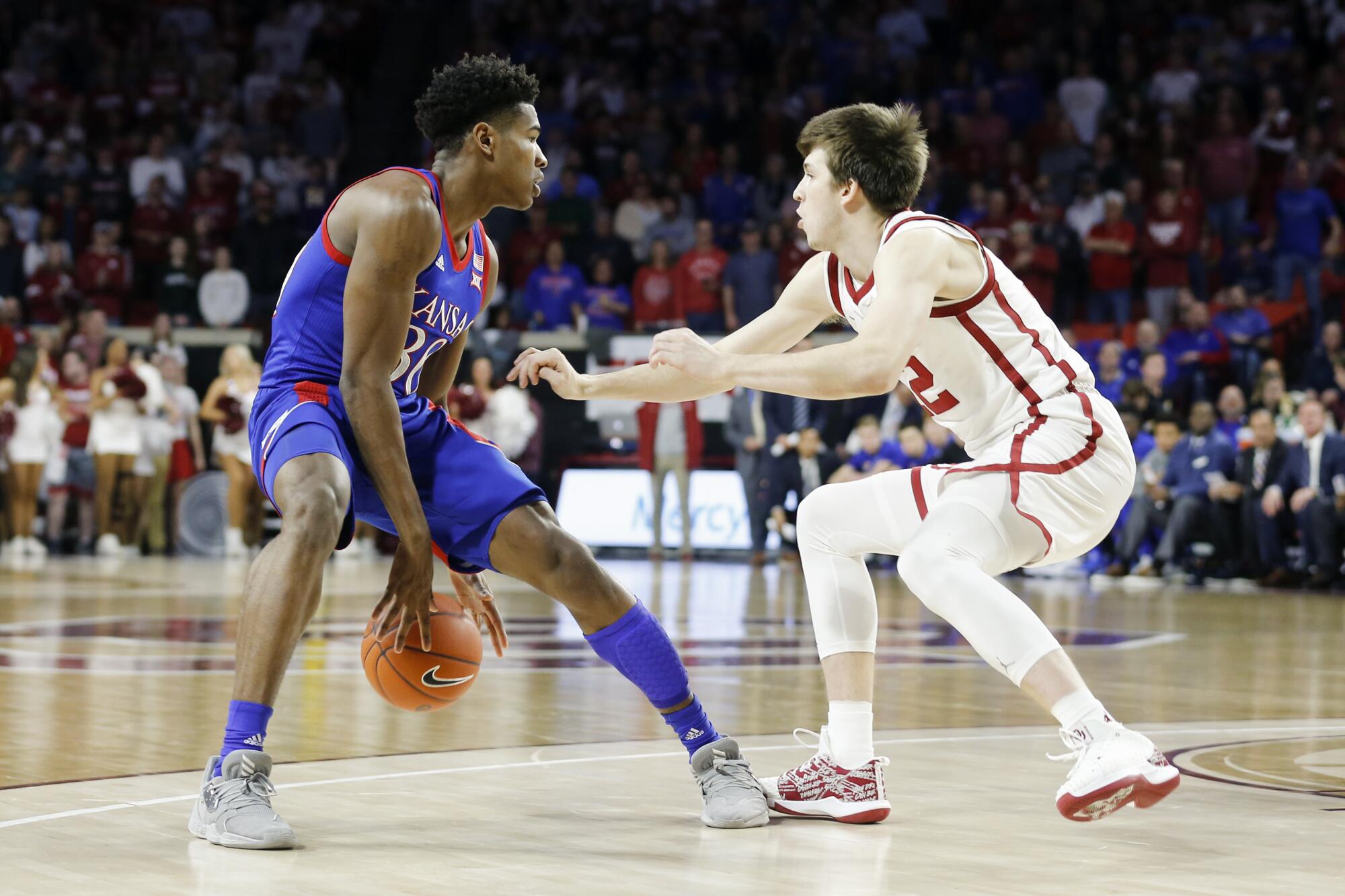
It continued into his senior year. He had 32 points in his second game of the season, scoring at least 10 in all but two games. In the NCAA tournament, he had 23 in the first round before he scored 27 in a matchup with Gonzaga.
He could’ve come back for an extra year of eligibility because of the COVID-19 pandemic, but Reaves knew he was ready.
It was time for Newark to get an NBA player.
“Ohhhhhhhhhhhh, that’s Showtime.”
It was Reaves’ redshirt year at Oklahoma, during one of the scrimmage periods where he was cooking the Sooners’ first-teamers, when he got the ball in transition and galloped down the court.
He looked one way, faked and dropped the ball off in the other direction. It reminded everyone in the gym of Magic Johnson, and Oklahoma graduate assistant Will McNeill shouted what could’ve been a new nickname.
“Showtime.”
It didn’t last.
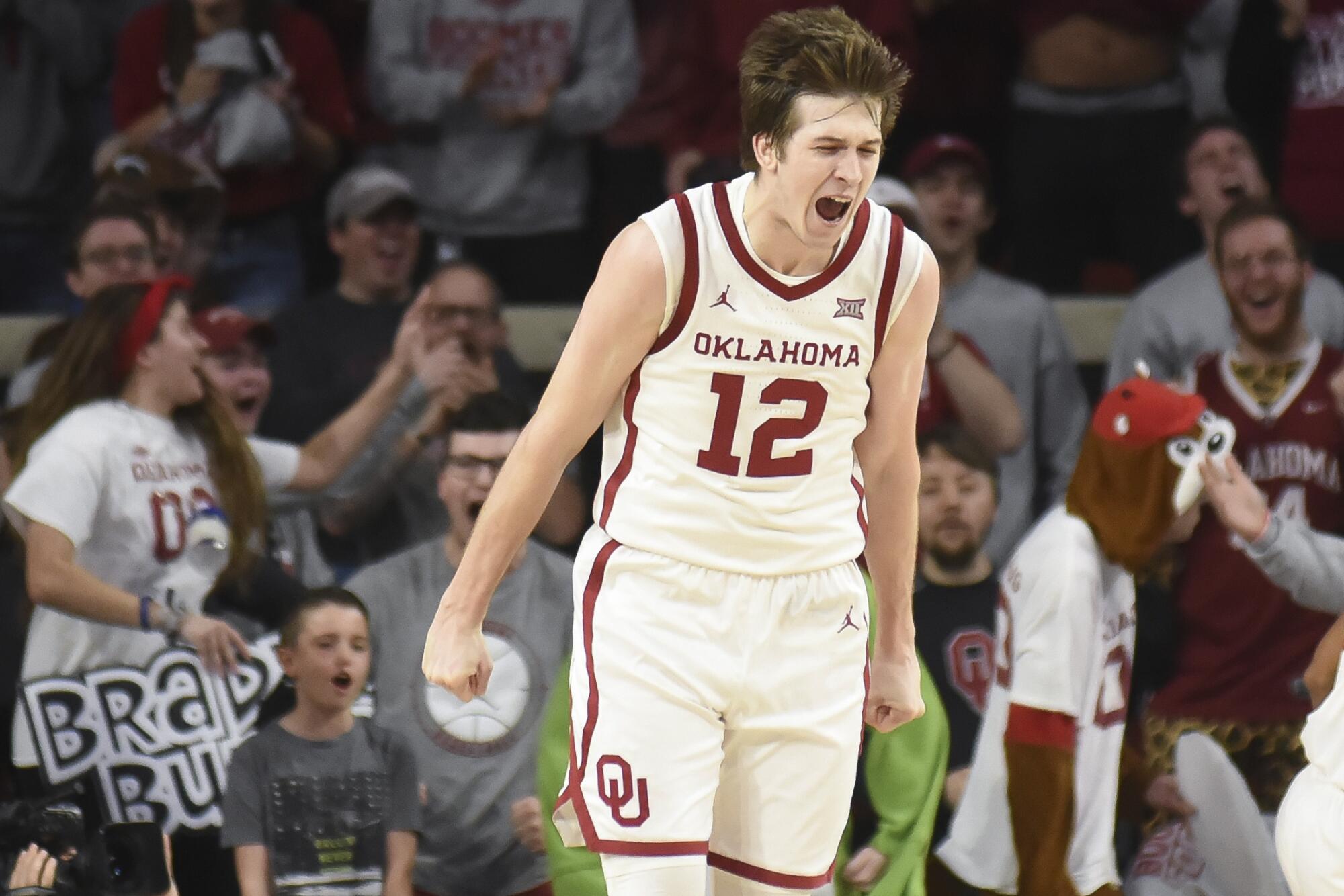
After a few days — and a few more dominant practices — Reaves acknowledged to another graduate assistant, Anthony Rini, that he wasn’t really feeling “Showtime.”
He wasn’t even born when Johnson was electrifying the Forum. His connection to the Lakers was through his favorite player — Kobe Bryant.
“I like Kobe,” Reaves said with his unshakable Arkansas accent.
With that elongated “Ko-bee,” Rini got an idea. And just like that, “Hillbilly Kobe” was born.
The name doesn’t get used a lot anymore, especially at the Lakers’ facility, the wounds of Bryant’s death still raw. But the connection to Bryant doesn’t end there; Reaves’ path to the Lakers, strangely enough, was similar.
Following his senior season, when it became clear that Reaves was going to be picked in the second round, his agents sent a message to teams — if you draft him, be prepared to offer him a guaranteed deal.
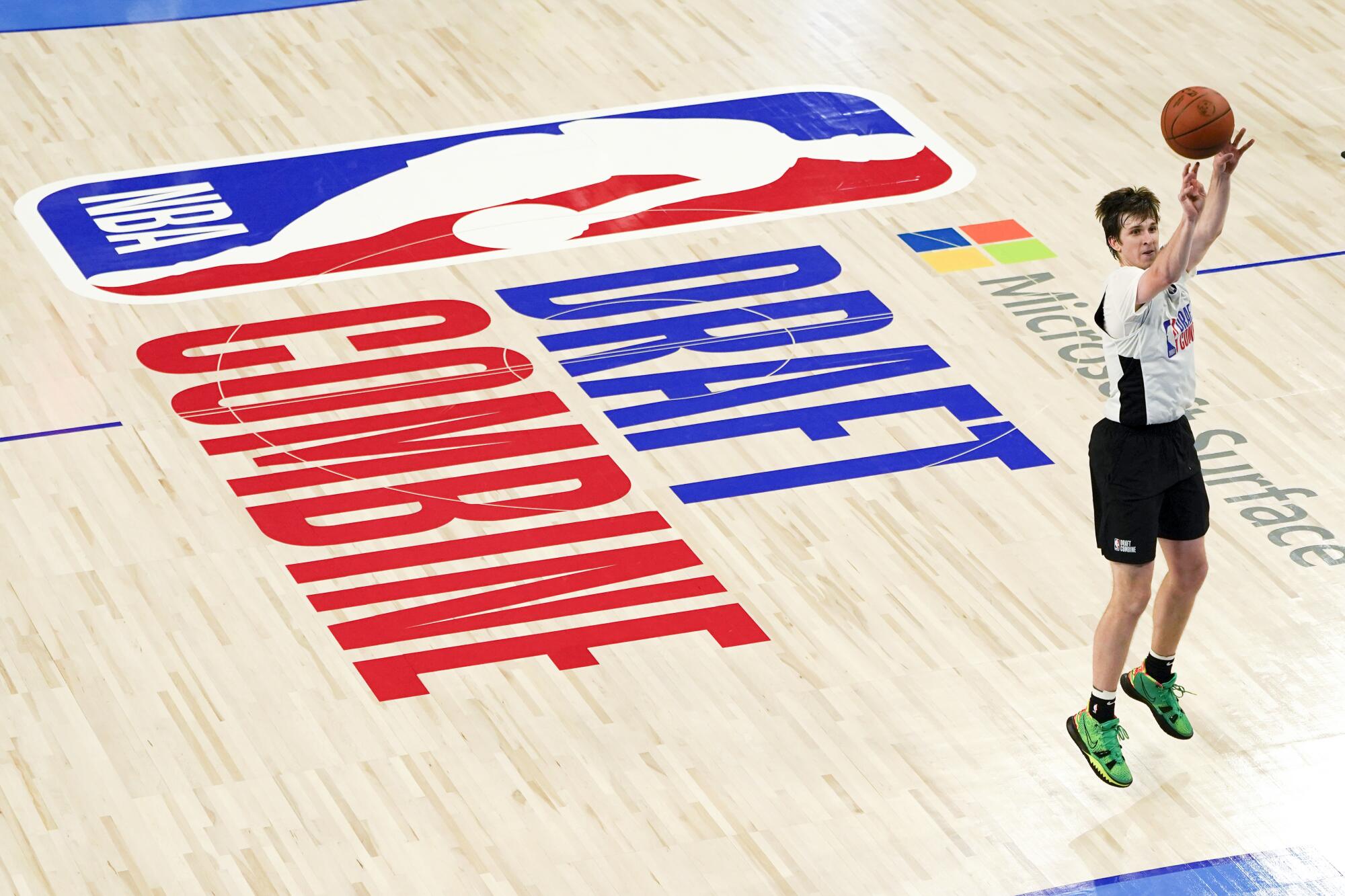
Just like Bryant and his agents famously did in 1996, the plan for Reaves was to steer him to the Lakers, who made it known they were interested in him.
If Reaves was signing a two-way deal anywhere, it was going to be with the Lakers.
On draft night, Reaves was home in Arkansas with about 20 people. There was interest early in the second round, but Reaves and his agents stuck to the plan.
He’d sacrifice hearing his name called in order to land in the right situation, and that meant heading to Los Angeles to play for Bryant’s old team on a two-way contract.
“When you have an opportunity to see the arc of a player, to discover him in the scouting process ... seeing that arc is really satisfying.”
— Lakers GM Rob Pelinka on the success of Austin Reaves
That two-way deal Reaves signed with the Lakers? It quickly converted to an official spot on the roster when the team heard about his play during a preseason mini-camp organized by LeBron James in Las Vegas.
When general manager Rob Pelinka saw early season practices, he was impressed by how comfortable and confident Reaves looked alongside the Lakers’ biggest stars.
“You could tell that this is a guy who knows how to play the game,” Pelinka said. “And those are the type of player you like to bet on.”
He debuted in the Lakers’ second game of the season, a plus-17 rating in 12 minutes during a loss to Phoenix. His role increased from there until a hamstring injury set him back.
Seven games into his return, Reaves had the defining moment of his season, making a game-winning three in Dallas at the buzzer before walking into a locker room where he was doused with water by his Hall-of-Fame teammates.
“The night was amazing. Good flight,” he said. “I slept great.”
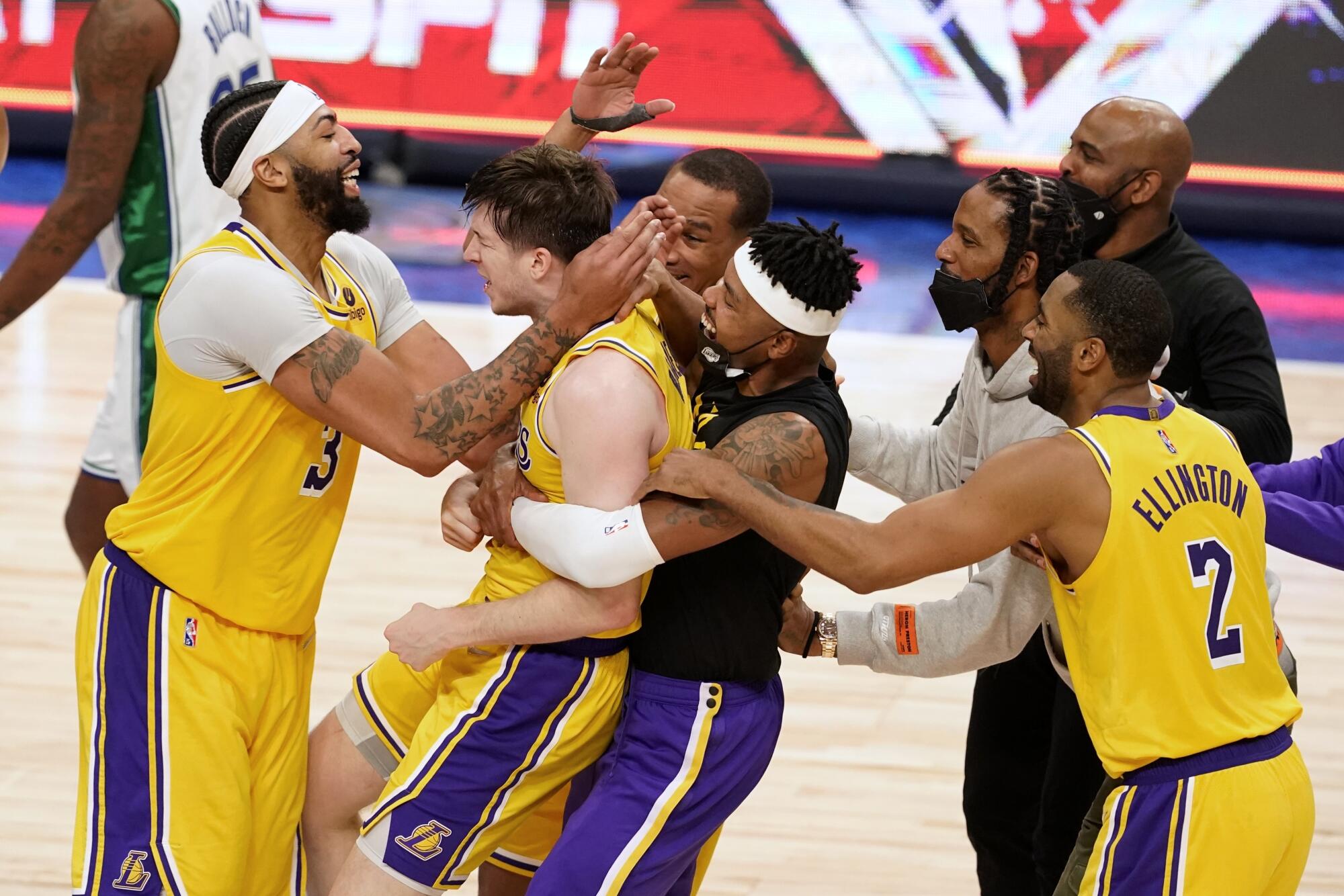
The next day, he tested positive for COVID-19. The following game Anthony Davis injured a knee. The Lakers’ season, which already was showing signs of being a struggle, started to unravel.
It made it all kind of weird.
“Our family likes to win,” said Spencer Reaves, who would either stay up late or wake up early with his roommate in Germany, where he plays professionally, to watch Austin and the Lakers.
It’s not like the Lakers’ losing could go unnoticed in a family like Austin’s.
“I can probably tell you the mistakes he made more than the points he scored,” his mother said.
“They wear me out,” Reaves shot back.
With the Lakers eliminated from the postseason in the final week, Reaves had a four-game stretch in which he averaged 18 points, 6.8 rebounds and 5.3 assists. In the season finale, Reaves led a comeback and finished with 31 points, 16 rebounds and 10 assists. The only other rookies in NBA history to have a 30-15-10 triple-double were Oscar Robertson, Jerry West and Blake Griffin.
In a fitting finish to the season, Reaves walked out of the arena holding a game ball in his hands having just learned coach Frank Vogel had been fired from a tweet sent seconds after the game ended.
“Like, it was a great year,” Reaves said. “A great year that was also horrible.”
Despite everything that went wrong with the Lakers, Reaves is one example of something that went right.
Pelinka credited thescouting department, including Jesse Buss and pro personnel director Nick Mazzella, and Joey Buss, chief executive with the G League team, with identifying Reaves as the right target.
From there, it was coaching and development, both from within the staff and veteran players, that helped Reaves quickly become a player who made an impact.
“When you have an opportunity to see the arc of a player, to discover him in the scouting process, bringing him in for workouts, acquiring him, developing him and bringing him along, seeing that arc is really satisfying,” Pelinka said.
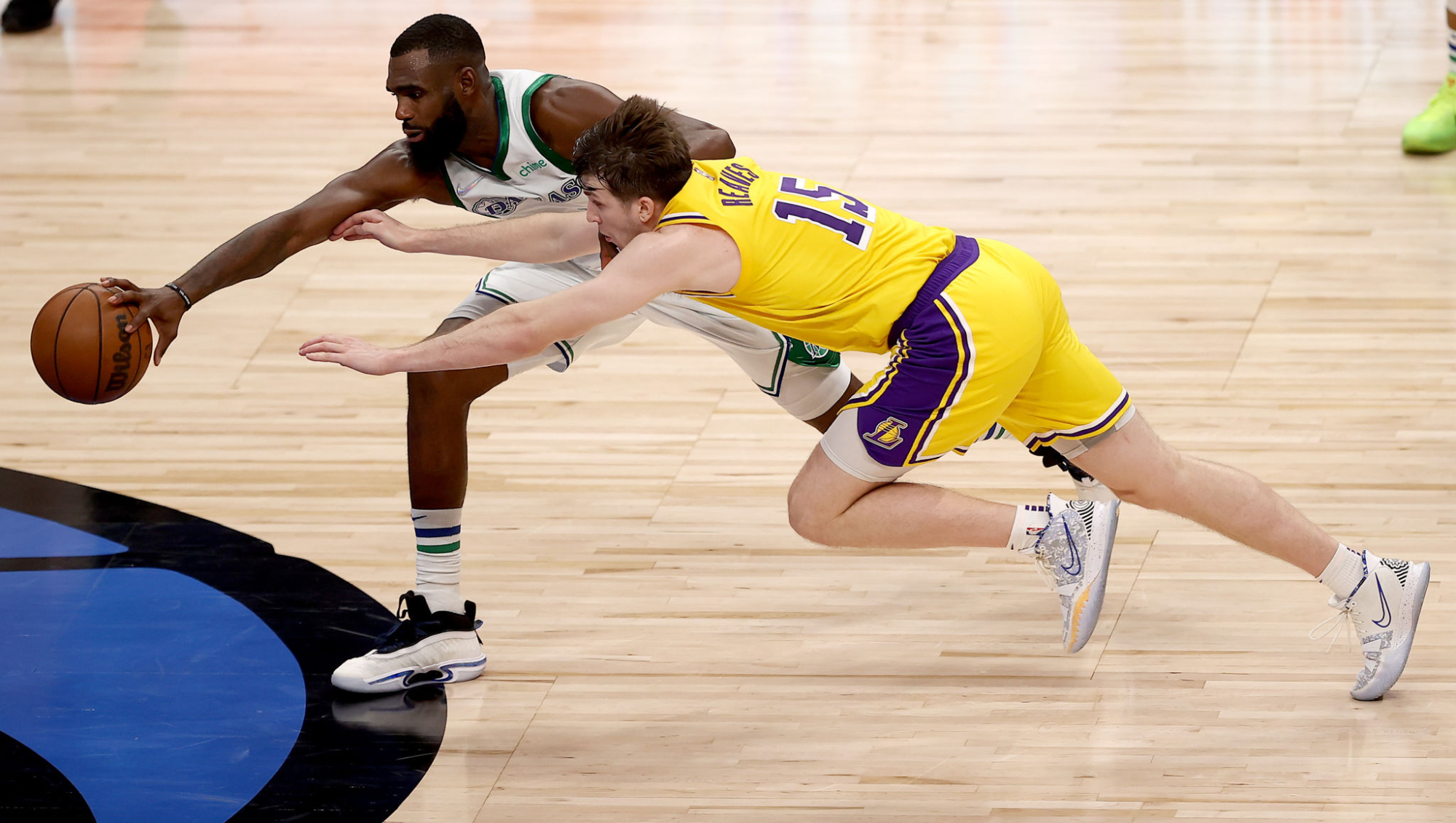
It’s a template the Lakers must follow with a shortage of draft capital and massive contracts for star players. Finding contributors on the cheap, especially young ones, is a crucial part of the plan. The Lakers undoubtedly will try to execute it again following this NBA draft, their second consecutive one without a pick.
Before Reaves headed back to Los Angeles, where he’ll work on his spot-up shooting and try to improve his flexibility with yoga, he sat in his father’s living room between rounds of golf. He kicked off his shoes, argued with his dad’s dog and bantered with his younger sister.
He remembered hearing about someone in town who made a bet with one of Reaves’ friends, that he never would make it in the NBA.
During the All-Star break, Reaves said he crossed paths with that losing bettor, eye-balling the doubter before heading back to his life as an NBA player.
“Oh yeah,” he said. “It was amazing.”
Around his hometown, everyone knows what he’s done.
And only the cows don’t care.
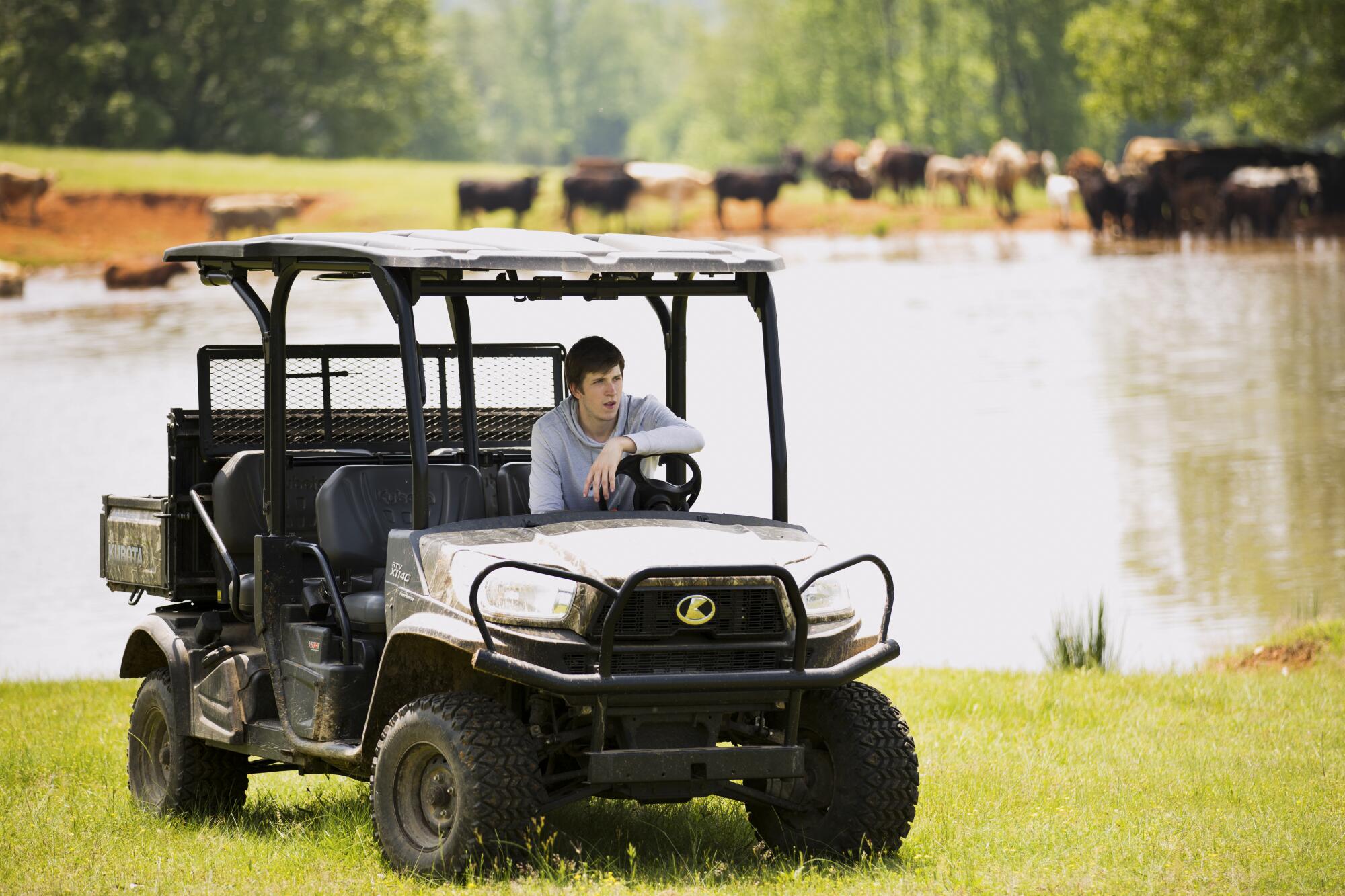
More to Read
All things Lakers, all the time.
Get all the Lakers news you need in Dan Woike's weekly newsletter.
You may occasionally receive promotional content from the Los Angeles Times.

